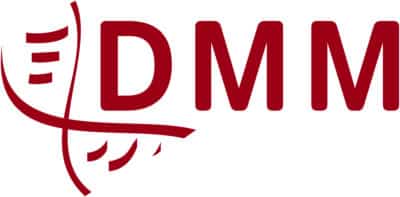
🆕 The detailed program of the 2024-25 edition is available here
The Post-Graduate Course in Bioethics, active for over 30 years, is part of the post-graduate training initiatives offered by the University of Padua, and is designed to provide an introduction to bioethics in general, and specific competencies to employ in the professional field.
The Course provides training on the ethical issues raised by biomedicine, and discusses them in connection with the public debate, and by promoting comparison between different opinions. It also includes a lab where the theoretical prospective of academic researchers can interact with the experience and reflections of those engaged in care and research practices.
The Course has been activated upon proposal of the following Departments: Biology; Philosophy; Sociology; Pedagogy and Applied Psychology; Molecular Medicine (reference Department); Women and Child’s Health; Political Sciences, Legal Sciences and International Studies.
The Course Director is Enrico Furlan, Moral Philosophy and Bioethics Researcher.
The Post-Graduate Course in Bioethics is divided into three modules:
- Bioethics: fundamental questions;
- Bioethics and healthcare;
- Bioethics and life sciences.
The Course includes two events organized annually: Colloqui su bioetica e dignità umana, by Corrado Viafora, and the International Seminar on Ethical Issues in Medical Biotechnologies, by the Filosofia morale e Bioetica research group of the Molecular Medicine Department.
The Course employs several educational methods: lessons with debates, comparison between different opinions, in-depth seminars with experts, hands-on practice and group activities, clinical sessions.
During the opening session, attendees will receive the Course manual, which explains the conceptual horizon within which the training path evolves: C. Viafora, E. Furlan, S. Tusino (by), Questioni di vita. Un’introduzione alla bioetica, FrancoAngeli, Milan 2019.
In addition, for each session, the organizing secretariat will make available to the students, on the Moodle page of the course, other relevant materials and documentation.
The Course includes national and international professors, belonging to some of the most prestigious organizations and institutions in the bioethics field.
The Post-Graduate Course in Bioethics is addressed for and aimed at:
- young graduates of different disciplines, interested in bioethics, who want to complete their training with a dedicated course;
- professionals working in social-healthcare services, whose day-to-day practice is increasingly marked by problems of moral nature;
- professionals in different fields (healthcare, environment, communication, training), managing initiatives that tackle bioethical aspects;
- professional and non-professional figures involved in ethical committee activities;
- secondary school professors who wish to acquire the tools to tackle bioethics issues in their class work.
At the end of the Post-Graduate Course in Bioethics, participants will be able to:
- understand the cultural scenario of bioethics;
- analyse the challenges opened by new technological intervention powers on life;
- suitably address the most significant ethical questions raised by these new powers;
- Identify the strengths and weaknesses of the different ethical traditions engaged in the bioethical debate;
- organizing ethical analysis and decision-making processes concerning clinical practice cases and contexts;
- taking part in ethical committee activities.
The detailed program of the 2024-25 edition is available here
The Post-Graduate Course in Bioethics is divided into three modules, dedicated to:
- BIOETHICS: FUNDAMENTAL QUESTIONS
The first module introduces attendees to the moral reasoning structure. This is done through a series of lessons and group activities, with the goal of presenting the most used ethical theories in the bioethical debate: utilitarianism, liberal theory, personalism. Particular attention is paid to the argumentative resources of the idea of human dignity, which inspired the ethical analysis methodology covered by the Course and applied within the clinical sessions of the second module. The same idea acts as background in the comparison between the ethical theories presented and the different positions supported on some of the emerging bioethical beginning- and end-of-life questions.
- BIOETHICS AND HEALTHCARE
The second module is dedicated to exploring the context where bioethics has developed and continues to develop its most intense activity – healthcare, with particular reference to the most ethically challenging areas: oncological care, intensive care, long-term care and palliative care. To tackle this task, the tool offered is clinical sessions, structured as such: characterization of the context that acts as background for clinical data, epidemiology trends, organizational aspects (by healthcare professionals with proven experience and competencies in the field); presentation of a clinical case taken by the related context to highlight the most recurring ethical issues, or those that have generated uncertainty, perplexity, doubts; presentation by bioethics and/or biolaw scholars of the framework where these issues are tackled; analysis and group discussion to discuss about the ethical issues raised by the case.
- BIOETHICS AND LIFE SCIENCES
The third module is dedicated to the ethical questions open by biotechnologies, and resulting from the application of genetic engineering to human, animal and plant life. One specific aspect that will be covered is the relationship between science autonomy and responsibility, and, in broadest terms, between science and society. In light of this perspective, the following ethical questions will be analysed and discussed: regenerative medicine and stem cells; predictive medicine and genetic testing; ethical neuroscience implications; animal testing. The discussion on each one of these questions will comprise a scientific and a bioethical contribution.
- “The solidarity inspiration of the public health service: philosophical and legal perspectives”, speeches by Emanuele Rossi and Alessandro Volpe. The recording of the event is available here;
- “One health: rethinking health?”– Friday 6 December 2024, speeches by Ilaria Capua, Mariachiara Tallacchini and Luca Leone. The recording of the event is available here;
- “Artificial Intelligence and Big Data in Biomedicine: Ethical Issues“ – Tuesday, 30 May, from 9 a.m. to 1 p.m. With Prof. Marcello Ienca. The recording of the event is available here;
- “Nature and Power. For an expanded theory of respect” – Friday 5 May, from 3 p.m. to 6 p.m. With Enrico Furlan, Roberto Mordacci, Romana Bassi. The recording of the session is available at this link
- “Health professionals’ fatigue and health system crisis: ethical issues“ – 17 February 2023 from 15.00 to 18.00. Speakers: Marco Geddes Da Filicaia, Antonio Da Re, Fabio De Iaco, Marco Vergano. The recording of the session is available at this link
- “The voluntary interruption of pregnancy after the annulment of Roe vs Wade“ – 20 January 2023 from 9 a.m. to 5 p.m. With Lorenza Perini, Lucia Busatta, Anna Aprile, Paola Veronese, Emanuela Busa, Bruna Mura, Caterina Botti, Massimo Reichlin. Scientific Direction: Enrico Furlan, Silvia Tusino.
- “Is medical aid to dying compatible with the care relationship? Comparing Ethical Perspectives” – 25 November 2022 from 3.00 p.m. to 6.00 p.m. Keynote speakers: Piergiorgio Donatelli and Massimo Reichlin Introduction by Prof. Enrico Furlan. The recording of the session is available at this link
- “Artificial Intelligence and big data in biomedicine: ethical issues” – International Seminar online 10 June 2022, from 3 to 6 PM. With Marcello Ienca. Session recording available here
- La questione ecologica: verso una responsabilità bioetica globale – Friday, 29 April 2022. With Simone Morandini and Telmo Pievani. Session recording available here.
- Dove va la medicina oggi? – Friday 11 February 2022. Keynote speaker Mario Strazzabosco – Yale University, with: Luca Fabris, Valter Giantin, Maria Grazia Carraro. Session recording available here
- Eutanasia e aiuto al suicidio: prospettive etiche e biogiuridiche a confronto. With Debora Provolo, Carlo Casonato, Stefano Canestrari. Session recording available here
- Eutanasia e aiuto al suicidio: prospettive etiche a confronto. With Piergiorgio Donatelli and Massimo Reichlin. Session recording available here
- La relazione di cura tra legge e prassi. Un bilancio sulla legge 219/2017 a 4 anni dall’approvazione. With Luigi Gaudino, Enrico Furlan, Kevin De Sabbata, Franco Pertoldi, Paola Ponton.
- Responsabilità per il bene comune e libertà individuale: le sfide della pandemia. Keynote speaker, Roberto Mordacci, and other guests: Elena Pariotti, Andrea Crisanti, Mariassunta Piccinni. Session recording available here
The general ranking of merit for the academic year 2025/26 will be published on the Italian page of this Course according to the timing provided in the Call.
Information
FAQ
Lessons will be held both in person and online (half and half). There will be no dual mode. All sessions will be audio or video recorded.
The final exam is based on the evaluation of a dissertation on a topic covered during the Course or agreed with the Direction. The dissertation is mandatory to achieve the diploma. During the Course, specific attention will be given on how to prepare and complete the dissertation.
Given the interdisciplinary nature of bioethics, admission is open to candidates from a wide range of scientific and liberal art disciplines. The title required is a Bachelor’s Degree (all classes) or the Healthcare Professional or Regional Nursing School Diploma. If you don’t have any of these titles, you can enrol as listener.

